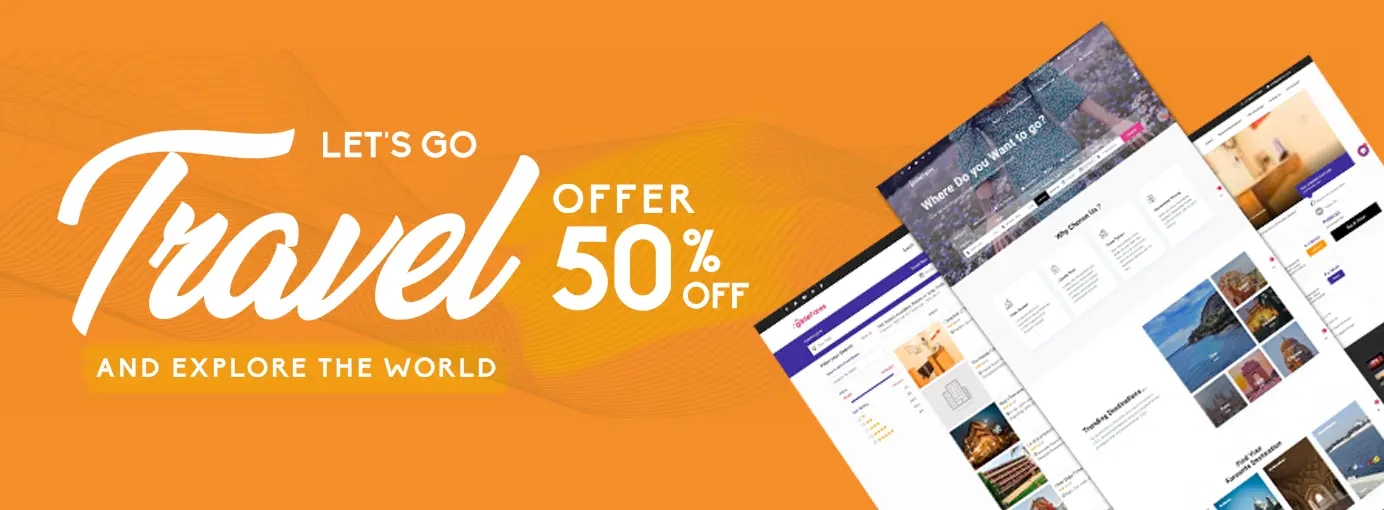Ready to go-LIVE travel solutions that helps your travel agency to sell a range of travel services pretty instantly. adivaha® travel solutions make sure you have no boundation over your imagination, you can do everything online, without the need for any technical knowledge or design skills. Easy Backoffice, extensive reporting with integrated Funds Management System.
Revolutionize Travel Booking with Hotel-Reservation-System Upgrade

A hotel reservation system is an essential tool for travelers looking to book accommodations with ease and efficiency. By utilizing a hotel reservation system, users can easily search for available rooms, view pricing information, and secure their booking within minutes. This system streamlines the process for both guests and hotel staff, ensuring a seamless booking experience from start to finish. Hotels that implement a robust reservation system are better equipped to handle a high volume of bookings, reduce errors, and provide a more personalized service to their guests.
Hotel web service APIs play a crucial role in the functionality of a hotel reservation system. These APIs allow hotels to integrate various services and features into their booking platform, such as real-time room availability, pricing updates, and secure payment processing. By leveraging hotel web service APIs, hotels can offer a more user-friendly and customizable booking experience to their customers. The seamless integration of APIs ensures that the hotel reservation system is up-to-date and offers accurate information to users, enhancing the overall booking process.
When it comes to travel planning, integrating a flight API into the hotel reservation system can provide added convenience and value to users. Flight API integration allows travelers to seamlessly book their flights and accommodations in one platform, saving time and effort in coordinating their trip. This integration streamlines the booking process, reduces the risk of errors, and provides users with a comprehensive travel solution. By leveraging both hotel web service APIs and flight API integration, hotels can offer a holistic booking experience that caters to the diverse needs of modern travelers.
Android mobile apps have revolutionized the way we interact with technology, offering a vast array of possibilities for users worldwide. When it comes to developing an Android mobile app, one crucial aspect to consider is the mobile app demo. A mobile app demo serves as a preview of the app's features and functionalities, providing users with a glimpse of what to expect. By incorporating interactive elements and smooth navigation, developers can create a compelling mobile app demo that entices users to explore further.
One key consideration when developing an Android mobile app is the use of mobile app templates. Mobile app templates are pre-designed structures that can be customized to fit the unique requirements of a particular app. By utilizing mobile app templates, developers can streamline the app development process, saving time and resources while ensuring a polished end product. Whether it's a gaming app, productivity tool, or social networking platform, mobile app templates offer a solid foundation for building innovative and user-friendly Android mobile apps.
In conclusion, Android mobile apps continue to shape the way we engage with technology, offering endless possibilities for both users and developers alike. By leveraging the power of mobile app demos and mobile app templates, developers can create captivating and functional apps that cater to the ever-evolving needs of mobile users. Whether you're a seasoned app developer or newcomer to the field, incorporating these elements into your Android mobile app development process can pave the way for success in the competitive world of mobile app development.
Revolutionize Travel Booking with Hotel-Reservation-System Upgrade.
When it comes to enhancing the user experience of travelers, the android-mobile-app is key. By leveraging mobile-app-demo solutions, travel companies can provide a seamless booking process for their customers. These demos showcase the efficiency and convenience of using an Android mobile app for hotel reservations. With integrated features like real-time availability and instant booking confirmations, the hotel-reservation-system upgrade ensures a hassle-free experience for travelers on the go. Plus, with mobile-app-templates, businesses can customize their app interface to reflect their brand identity and offer a unique booking experience to users.
The travel industry is evolving, and so should the way bookings are made. With an Android-mobile-app, the process of booking hotel reservations becomes more streamlined and efficient. Through mobile-app-demo presentations, customers can explore the features and benefits of using an app for their travel needs. The hotel-reservation-system upgrade optimizes the booking flow, making it easier for users to search, select, and book accommodations seamlessly. By utilizing mobile-app-templates, travel companies can design visually appealing interfaces that enhance user engagement and encourage repeat bookings, ultimately revolutionizing the way travelers plan their trips.
In today's digital age, having a user-friendly mobile app is crucial for staying competitive in the travel industry. The Android-mobile-app is a game-changer when it comes to streamlining the hotel booking process. With mobile-app-demo tools, businesses can showcase the functionality and efficiency of their booking system, enticing users to switch to an app-based reservation experience. By implementing a hotel-reservation-system upgrade, companies can offer advanced features such as personalized recommendations and seamless payment options, making the booking process more convenient and enjoyable for travelers. Through the use of mobile-app-templates, businesses can create a visually appealing app interface that enhances user experience and encourages customer loyalty for their travel booking needs.
